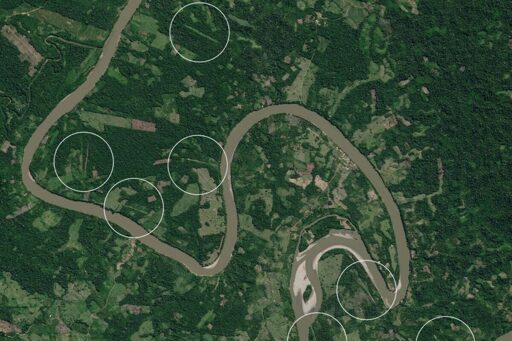Founder’s Briefs: An occasional series where Mongabay founder Rhett Ayers Butler shares analysis, perspectives and story summaries. Few newsrooms venture far into the darker corners of the Amazon. Fewer still return with evidence detailed enough to shift policy. Mongabay Latam managed both, and the feat has now earned the outlet a Global Shining Light Award in the Large Newsroom category at this year’s investigative-journalism gathering in Kuala Lumpur. Investigations from Nigeria, Egypt, Peru, and Mexico were recognized at the Global Shining Light Award ceremony at GIJC25. Image: Suzanne Lee, Alt Studio for GIJN The prize honors reporting done under genuine threat. And in this case, the danger was not abstract. The project took shape in regions where reporters think twice before lingering, where a wrong turn can bring you face to face with the emissaries of a drug economy that has seeped into Indigenous territories. Mongabay Latam’s team spent a full year mapping a network of clandestine airstrips cut into remote forests in Peru, areas where organized crime has expanded its reach and where Indigenous leaders have been killed for resisting it. Fifteen such leaders have been murdered in recent years; dozens more live under threat. What the journalists uncovered was bigger than local rumor. After a long phase of information requests, travel, and interviews with more than 60 sources, they identified 67 illegal runways in three regions: Ucayali, Huánuco, and Pasco. Thirty of the strips lie inside Indigenous territories. One cluster in Atalaya, a province now defined as much…This article was originally published on Mongabay
From Conservation news via this RSS feed


